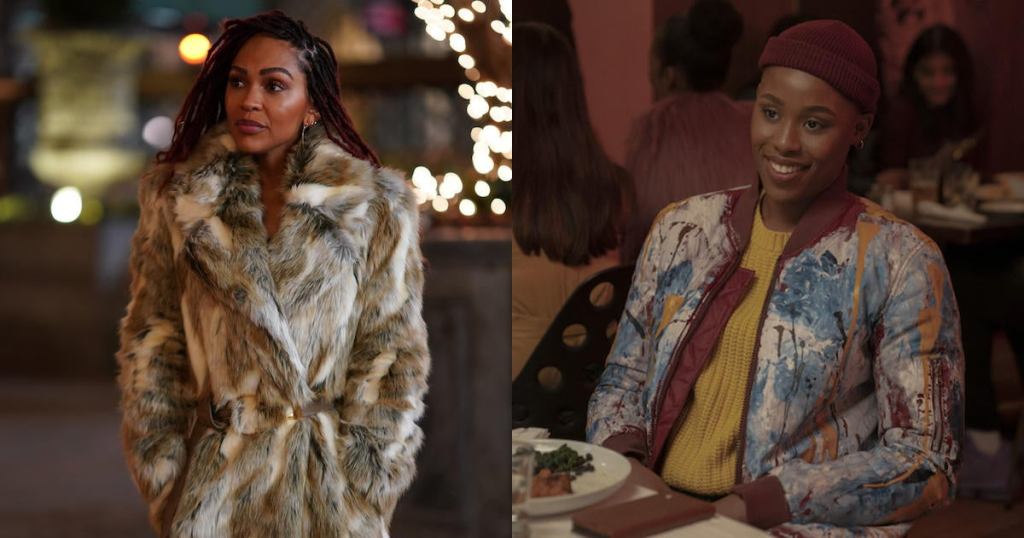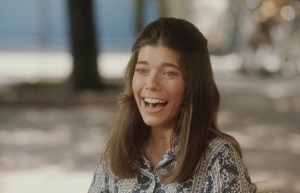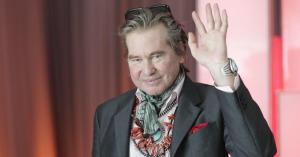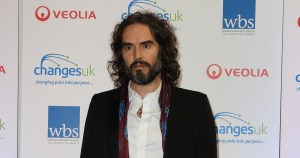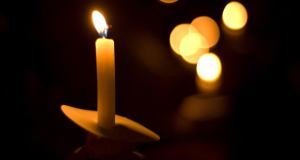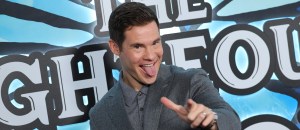Tracy Oliver’s newest project Harlem is spotlighting a much-needed lens on the intricacies of Black 30-something women navigating life, love, and careers. The Prime Video show centers on how the women rely on their friendship circle to keep them grounded. Meagan Good, Jerrie Johnson, Shoniqua Shandai and Grace Byers are giving millennials a modern-day version of the 2000s hit Girlfriends.
For Good, this is the role she’s been working toward her entire career. Johnson says it’s one that is a true representation of Black queer life. Pop Culture spoke with both stars about the show, how it’s necessary for the culture, and lessons they want viewers to take from the series. Scroll through to read our full Q&A with the duo. (It’s also available in video form at the top of this article.)
Videos by PopCulture.com
PC: So I loved Harlem, I loved all the Black girl magic and I look forward to everyone watching. So Meagan, what attracted you to this project specifically? And was it fun being in this dynamic of just a foursome, for the duration of the project?
MG: It’s been definitely one of the highlights of my career and life. To be in a place where you really love the character that you’re playing, you really love the people that you’re working with. You really love of like, just the experience that you’re having, because my kind of motto is even if you’re working, it’s a day in your life that you never get back. And so you want every day to be rich and full and to enjoy yourself and to do something that feels purposeful. And that’s exactly what this show is for me.
And I, so connected to Camille because there’s so much of who she is that I am that people don’t know. And I haven’t really got a chance to play a character like this. And I knew this was the kind of thing, the kind of character that I wanted to play. And to read the script that Tracy, I mean, I was just like, oh, it’d be a blessing if I get this and then I got it. And then yeah. So everything about this experience has just, it’s really been epic and a blessing. And one I’m so proud of and excited to share with people.
And Jerrie, your character is such a proud and beautiful representation of the LGBTQ plus culture. I actually spoke with Sidra Smith not too long ago. And I told her that I was very happy to see a love tell because I feel like that was such a nonstereotypical portrayal of Black queer love. And I feel like your character, Tye, is truly an embodiment of that is really an extension of what Sidra did in her project. So how pivotal do you feel that Tye is to the audience that will be watching?
JJ: Well, I think it’s so pivotal because there is no character that I’ve seen that I’ve experienced in television, who exists in this way, a Black, masculine-presenting/androgynous woman who owns her own tech company, which, I mean the amount of Black people that own their own tech company versus the amount of Black women that own their own tech company. And there’s no data supporting Black people who own their own tech company, right? It’s just a small amount of people, a small amount of Black people in tech. And so I think Tye starts the conversation of how do we begin in to get Black people at an earlier age in the tech sector? How do we give Black people access to tech? And even the fact that she owns a company that supports LGBTQ people trying to date and trying to create a safe space for that is something that also doesn’t exist.
So I think she is this beautiful, imaginative character that can start to shift the paradigm of how we look at ourselves, how I look at myself a queer person down to how people dress and Dierdra, who was the costume designer, who was amazing in that we had lots of conversations about not wanting to make Tye a stereotypical butch female, right? How do we elevate a conversation that’s already being had? And also if you’re walking down the streets of Harlem, if you’re down the streets of Brooklyn, you see fly-ass people, people are dressed to the nines to walk their dog, to go get some groceries. And so that element being put on top of what Tracy already wrote is just, it just makes this, I think, transformative in terms of Tye and also all four of the characters.
Now, obviously, we’re seeing the complexities or the struggles of dating in this new world. You mentioned the whole idea of bringing technology into the situation, and Meagan, your character Camille is really on this quest to show what a boss woman looks like and taking power and taking control in the dating world. And for women in their thirties, they might feel that the need to start settling and knocking some things off of their list, but you did the opposite in your personal life. Fans of yours know your story and we’ve read your book and, you said I’m not going to settle. So what advice would you give to the 30 and over a crowd? Who’s going to watch this show who are kind of in that space of dating and trying to figure it out?
MG: You’re not crazy. We’re all trying to figure it out. And I think that sometimes you’re made to feel badly because you don’t have it all figured out, but the truth is nobody does. And I think it’s really about knowing your self-worth. And if you don’t know, working at it every day and knowing that you deserve God’s best and knowing that whoever comes into your life has to compliment where God is taking you and you don’t have to settle. And I don’t know, we’re all figuring it out though. I think that’s important to say, because it’s not said enough and we often feel awkward because we think it’s just us and it’s not.
JJ: As soon as we think we have it figured out, God comes and shakes it up.
MG: Right.
Jerrie, like I said I love the dynamics of the friendship. I love that. There’s the dating aspect of the show. There’s the career aspect of the show and your characters all portray you guys at different stages of your life, whether that’s in love, in career, within your actual circle of friends. So what themes and lessons do you want viewers to take away when they watch this series?
JJ: That it’s O.K. to be successful and women are successful and can be successful in space that we’re not seen to be successful where there’s not representation of us being successful in. And also we have to take care of ourselves and each other. We have to know that in the quest to be the best, whatever, at whatever we can’t forget love, and that doesn’t have to mean a monogamous, romantic love, right? It can name that, but familial love, friendship, getting back to a deep sense of self-love. Always looking to like what it is that your heart desires in any given moment. And I think something beautiful about Tye, she’s Tye is kind of in the moment where she’s realizing what is important, but also the things that maybe she doesn’t think is important or haven’t had time to think about, her world gets shaken up and the universe is like, O.K., well, you have to now think about this and figure it out.
And for her, I would like for her to know, right? That you can do all the things that you want to do and be vulnerable and have love in whatever way that, that fits your life. And just knowing that there it’s so nuanced, everybody’s experience is so nuanced, and wherever you are that’s O.K. Because life is a journey, not a destination. And the list that you spoke about checking stuff off the list. I think we just need to get rid of the list. And follow our instincts. I agree.

